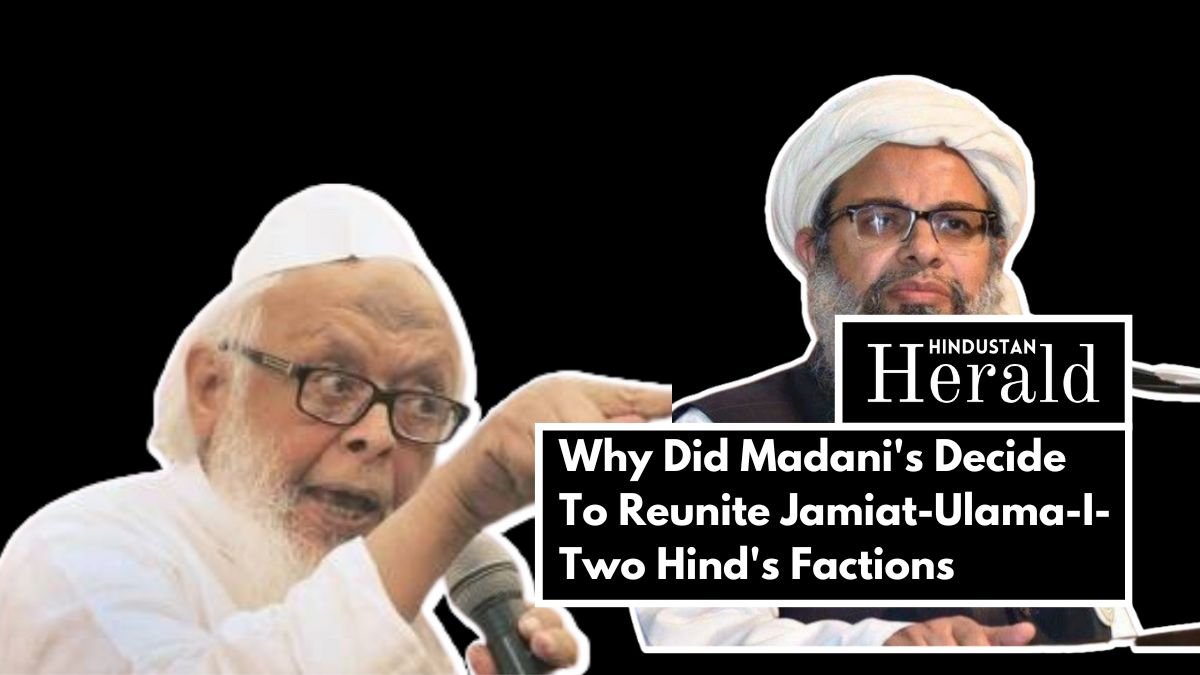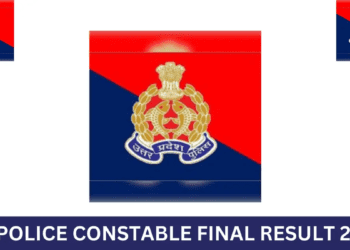Arshad Madani and Mehmood Madani have decided to reconcile Jamiat-Ulama-i in order to fight against anti-Muslim prejudice together.

The two factions of India’s oldest Muslim body, the Jamiat-Ulama-i-Hind, have decided to reunite in light of the country’s growing anti-Muslim hatred and violence.
The two factions Jamiat-Ulama-i, led by Maulana Arshad Madani and his nephew Maulana Mehmood Madani, have been fighting for leadership for 14 years. This action then marks the start of an attempt to reconcile the two factions’ long-standing differences.
“Seeing the current conditions in the country, especially against Muslims…there should be a common platform for the Jamiat to act together and unitedly,” Maulana Arshad Madani said earlier this month at the annual JUH conference.
Then, on June 18, Arshad Madani’s 30-plus member working committee passed a resolution granting full authority to Maulana Arshad Madani to finalise the process of merging both factions.
Last week, on July 22, the Mehmood Madani faction followed suit, passing a similar resolution in favour of reunification.
Despite the sincere attempt at reconciliation of Jamiat-Ulama-i, Zubair Found Hope: ‘More Interactions Can Change People.’, the actual process of merging the two bodies would be difficult.
The Split
Since the pre-independence era, the JUH has been a body of Muslim religious leaders who have vociferously opposed the country’s partition along religious lines. The organisation adheres to the Darul Uloom Deoband school of thought and has followers throughout the country.
After the death of its president, Maulana Asad Madani, in 2006, his younger brother Arshad Madani took over as leader.
Internal strife erupted over Arshad Madani’s leadership style, which was dubbed “autocratic” by late Asad Madani’s son and general secretary Mehmood Madani and his supporters.
“There were functional and organisational issues, and we did not approve of the way the organisation was being run,” Maulana Mehmood Madani told.
This eventually led to Arshad Madani’s ouster in 2008, after which he formed his own JUH, calling it the real Jamiat.’
Usman Mansoorpuri was appointed president of the other faction, but it was widely assumed that Mehmood Madani is the body’s decision-maker.
To make a clear distinction between the two, neither body agreed to give up the title of Jamiat or even adopt a modified version of it. The feud became so heated that the two factions filed lawsuits against each other in order to keep the ‘Jamiat’ title.
However, attempts to resolve the differences began in 2015, with both parties eventually withdrawing court cases against each other after the Delhi High Court in 2017 directed them to settle their differences and reach an agreement.
Who Started the Reunification Of Jamiat-Ulama-i?
Since 2015, the two bodies have gradually begun to interact more frequently, even attending each other’s events. However, it was an invitation extended by the Mehmood Madani faction to Arshad Madani to the body’s annual national conference in Deoband on May 28 this year that helped seal the deal.
For the first time in public, Arshad Madani hinted at reunification during the annual conference.
“I’m calling them Jamiat Ulama-i-Hind, and they’re calling me Jamiat Ulama-i-Hind.” This is a strange and strange thing. “Perhaps my presence here, among all of you, will eventually lead to the end of this (divide),” Madani said.
The senior Madani’s words were met with rousing applause from the conference attendees.
He then spoke about the need for Muslims to come together on a common and united platform in light of the widespread Islamophobia.
Mehmood Madani told that one of the main reasons the two bodies decided to reunite was to combat anti-Muslim sentiment. “But the other important reason is that, while both factions have worked independently to help society, that work will only be strengthened if we work together.” “Divisions don’t help anyone,” he said.

The Leadership Problem
However, many differences must be resolved before the merger can take effect.
“The problem isn’t just about two people getting together. Reunification must occur from the ground up. “There are thousands of members on both sides who will need to feel like one body now, that is the main thing,” Niaz Farooqui, secretary of the JUH
According to sources on both sides, the real stumbling block will come when it comes time to choose a president.
Also Read: Kanwar Yatra: Are Public Spaces In India Exclusively For The Rich?
Mehmood Madani, on the other hand, has stated that he is willing to resign as president.
“I have stated that I am willing to step down.” I have also instructed all district presidents (of the Mehmood Madani faction) to resign. However, they (the Arshad Madani faction) must now demonstrate similar generosity. Because someone will have to give up in order for this to work,” Madani explained.
Thus, despite Mehmood Madani’s ‘offer’ to step down, it remains to be seen how things play out when the chips are down.
Ideology and Politics
There are also issues of ideological differences that may arise in the long run. Both factions have taken controversial positions at different times—Mehmood Madani initially supported the National Register of Citizens (NRC) as well as the repeal of Article 370. Arshad Madani has previously praised the RSS and its leader Mohan Bhagwat.
However, both bodies have played an important role in rehabilitating victims of various communal violence, most recently the Delhi riots. Arshad Madani has also been instrumental in ensuring legal aid for those affected by the NRC in Assam.
As a result, the two have taken a variety of positions on a variety of issues, often surprising many Muslims. “It’s true that one never really knows what position either of them will take on any issue at any given time; it’s a product of many thoughts and considerations they have to factor in,” an officer-bearer in the JUH said on condition of anonymity.
The decision-making process is likely to become more difficult as the two factions join forces.
“We must ensure that the body is run democratically after unification.” “Unification without democracy will cause more harm than good,” Mehmood Madani stated.
There has also been speculation about whether the JUH will now enter the realm of active politics, which it has traditionally avoided. In an interview with India TV in May, Mehmood Madani denied the need for Muslims to form a separate political force like the AIMIM.
“Thought that Muslims should become a separate political force… that thought is not right for the country,” he said when asked about AIMIM leader Asaduddin Owaisi’s politics.
“We have never been a political body, and that will not change.” That is just how we are fundamental,” Niaz Farooqui told, echoing Madani’s sentiments.
Interestingly, two Darul Uloom alumni, Badruddin Ajmal and Siddiqullah Choudhary are important politicians in Assam and West Bengal, respectively, and continue to wield power among the Jamiat’s rank and file in both states.
Jamiat-Ulama-i-|| Don’t Forget To Subscribe To Our Newsletter To Get Curated Content In Your Mailbox. Also, Do Follow Us On Our Social Media Channels Facebook | Instagram | Twitter | Linkedin | and Youtube.














